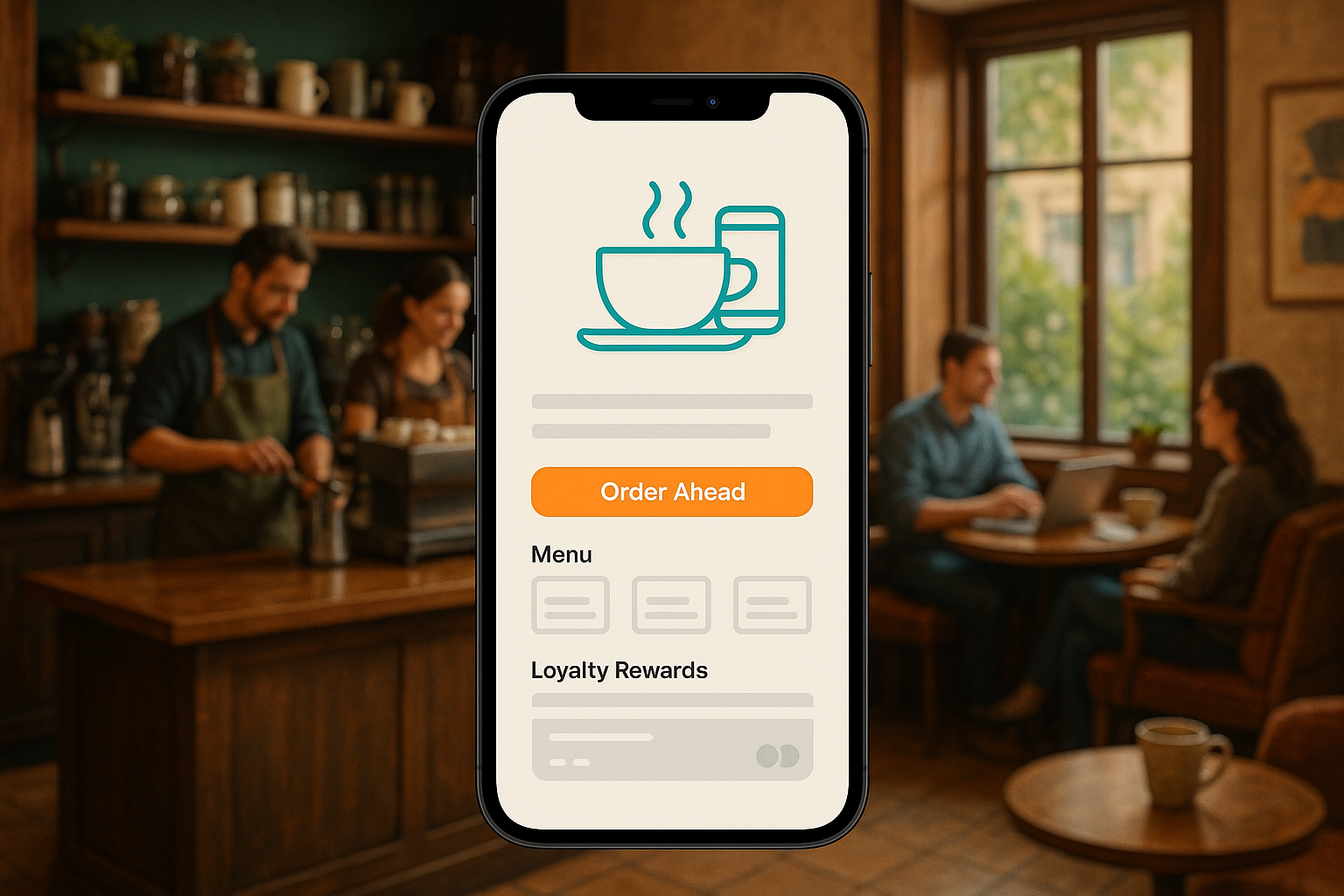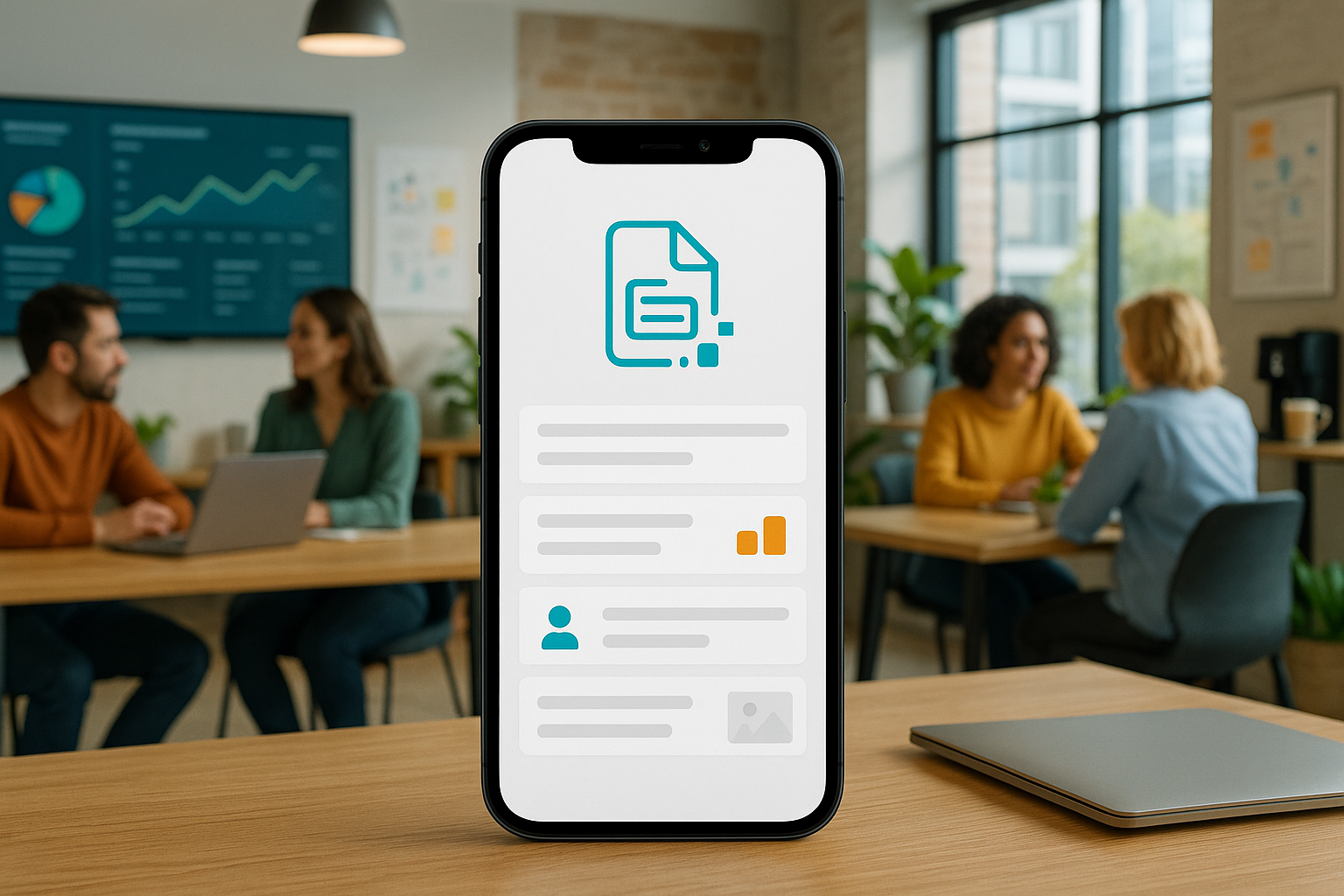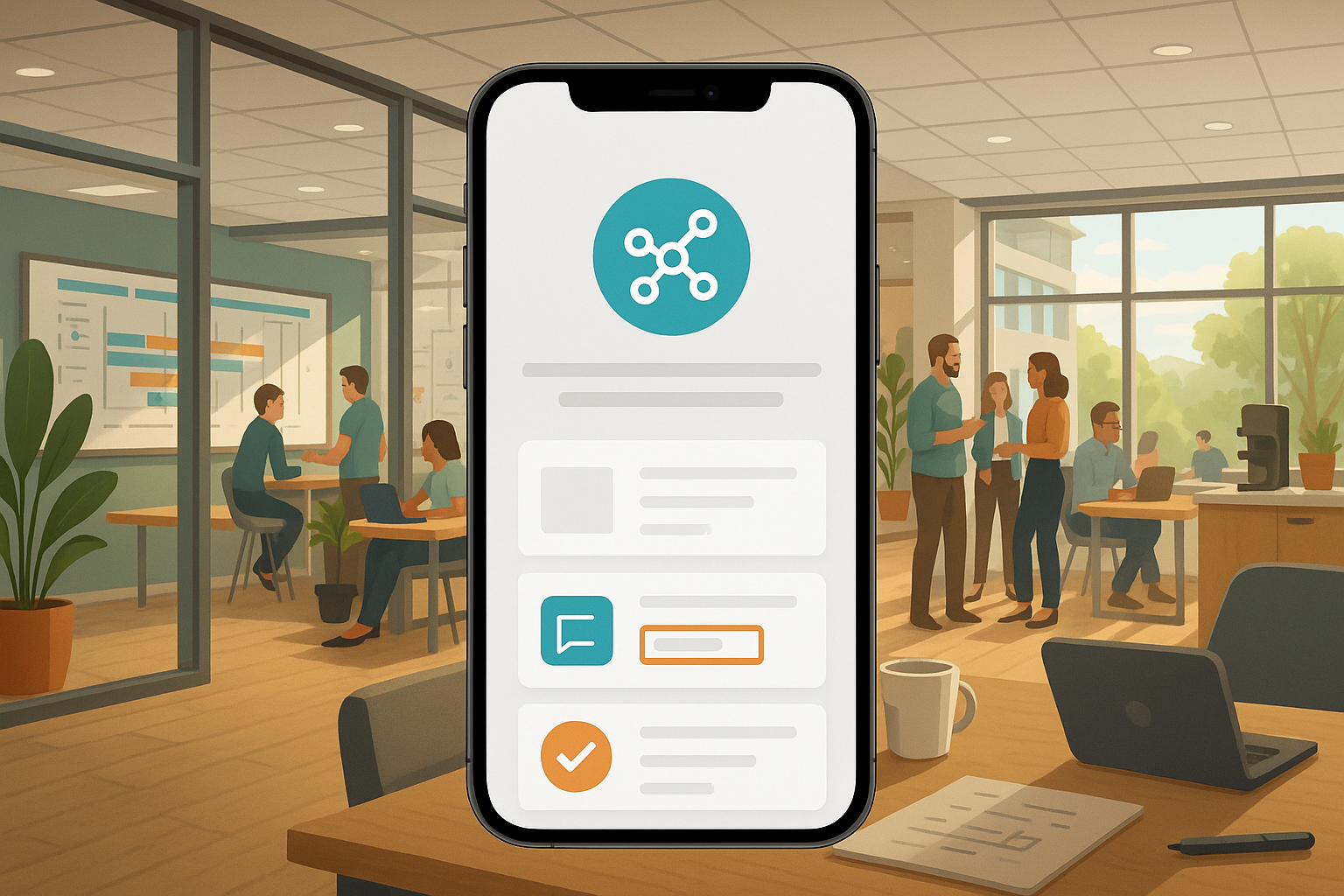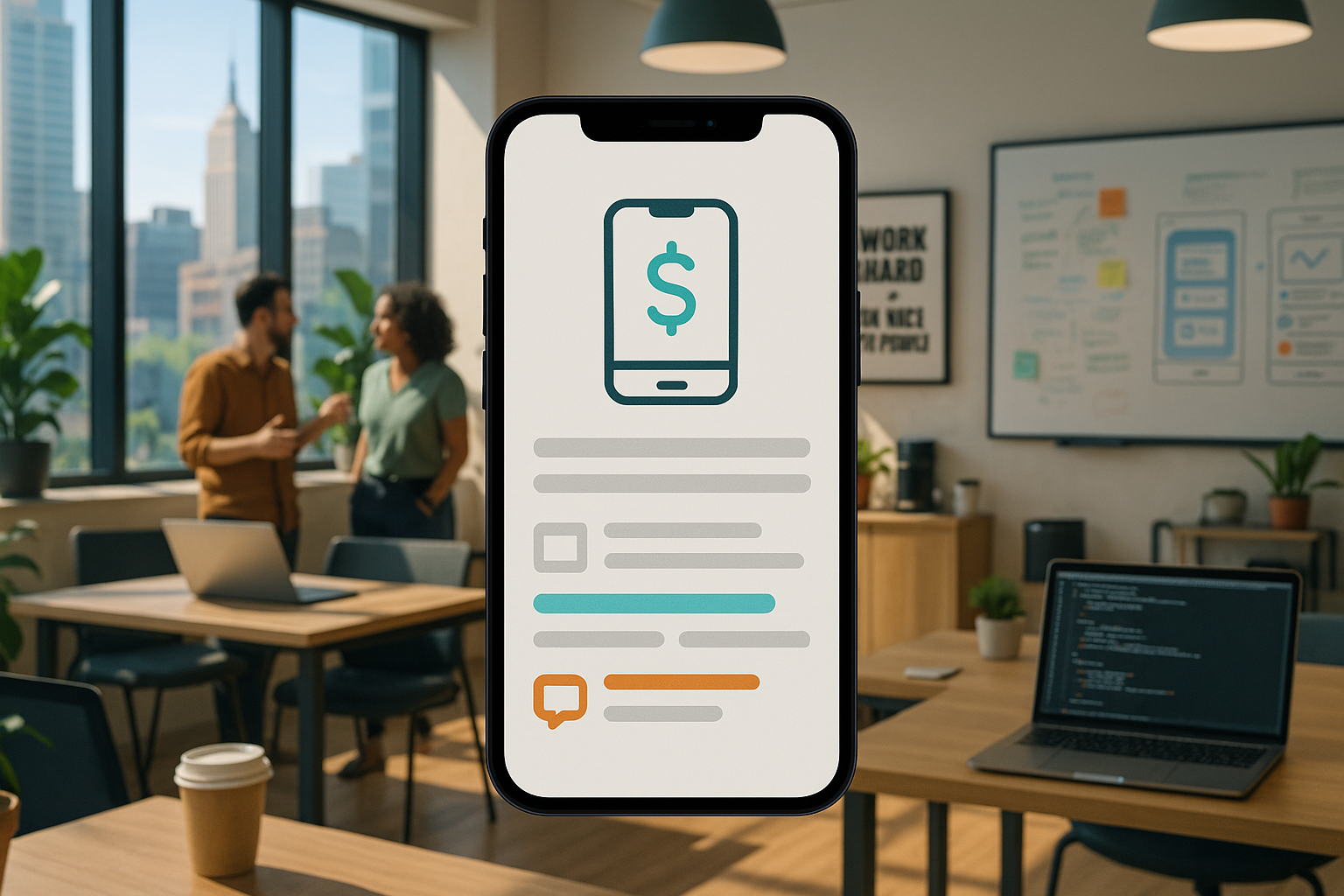Introduction
In today’s fast-paced world, the aroma of freshly brewed coffee is often accompanied by the glow of a smartphone screen. For coffee shop owners and aspiring entrepreneurs, a mobile app is no longer a niche perk but an industry standard, largely defined by the success of giants like Starbucks. Customers now expect the convenience of ordering ahead, paying with a tap, and earning rewards for their loyalty. However, developing an application that meets these high expectations is a significant undertaking fraught with technical, strategic, and financial challenges. Building a robust, secure, and user-friendly coffee app in-house requires a dedicated team of developers, designers, and project managers, along with a deep understanding of market trends and user behavior.
This article serves as a comprehensive guide to navigating the complexities of coffee app development. We will explore what defines a modern coffee app, dissect the reasons why in-house development is often a difficult path, examine the diverse business models that are reshaping the industry, and provide a detailed breakdown of the potential costs involved. Furthermore, we will introduce you to top-tier development companies that can transform your vision into a reality. As a leading US-based, AI-powered mobile app development firm, we at MetaCTO specialize in building, growing, and monetizing apps from concept to launch and beyond. We understand the intricacies of creating a seamless digital experience, and this guide will share valuable insights to help you on your journey.
What is a Coffee App?
At its core, a coffee app is a digital bridge connecting a coffee business with its customers. It’s far more than a simple menu display; it’s a powerful tool for enhancing customer experience, streamlining operations, and building a loyal community. An app similar to Starbucks has become the benchmark for newcomers, requiring a cohesive mobile strategy that integrates user-friendly features with effective loyalty programs. These applications are designed to provide a superior user experience, as competitors are already catering to coffee lovers with advanced ordering, payment, and value-added features.
A successful coffee app is built on a foundation of essential features that work in harmony to create a seamless user journey.
- User Registration and Profiles: The experience begins with simple user registration. Once onboarded, users have in-app profiles that are beneficial for both them and the business. These profiles enable personalized offers tailored to individual preferences and purchase history. Crucially, they also provide better data security through features like multi-factor authentication, giving users peace of mind.
- Aesthetic and Informative Menu: The menu is the heart of the app. It must be aesthetically designed and highly informative. This includes a complete food and drink catalog with clear subcategories, detailed item descriptions with titles and high-quality pictures, and customizable options for choosing sizes or adding extra toppings. A powerful search option is essential for quick navigation, and a clear Call-to-Action (CTA) button for ordering and purchase must be prominently displayed.
- Effortless Mobile Payments: Easy mobile payments are a major, non-negotiable feature. An integrated e-wallet feature allows users to connect their debit or credit cards for hassle-free transactions. This seamless payment process not only improves convenience but also helps users acquire points for the loyalty program with every purchase.
- Convenient Ordering and Location Services: A pre-order feature is a life-saver for most users, allowing them to place an order in advance and have it ready for pick-up at a designated time. To facilitate this, a map feature should be a major preference in development. This allows users to see the shop closest to them and provides assistance in reaching the location, completing the convenient “order-ahead” loop.
- Engaging Loyalty Programs: A customer loyalty program is one of the biggest assets in building a loyal customer base. A well-designed program within the app should clearly outline the terms, allow users to track their points, and feature easily redeemable rewards. This creates a compelling reason for customers to choose your app over a competitor’s.
Building an app with this level of sophistication requires a meticulous process, from initial prerequisites and prototyping to a grand market launch, ensuring every feature contributes to a cohesive and delightful user experience.
Reasons It Is Difficult to Develop a Coffee App In-House
Embarking on the development of a Starbucks-like coffee app is a journey that demands more than just a good idea; it requires a concerted effort by a team of both marketing and technical personnel. The complexity and resource allocation needed often make in-house development a formidable challenge for businesses, especially those without a pre-existing, large-scale tech department.
The development lifecycle itself is intricate and time-consuming. It begins with essential prerequisites, including extensive information gathering and market analysis, which can take up to 80 hours. This is followed by the critical design and development phase. An app like Starbucks requires creating a prototype to visualize how the app will function and look aesthetically. A low-fidelity prototype or navigation concept is first built to map out all cause-and-effect relationships between the app’s screens. The user experience (UX) design then details how users will feel about the app after using it. This UX design process is required to create a high-fidelity product, which is then released to a select audience to gather feedback on its performance before the final UI design, which details the visual aesthetics, is completed. This prototyping and design stage alone can consume 200 hours.
The technical build-out is even more demanding. The actual coding for each platform, whether iOS or Android, can take between 250 and 320 hours per platform. Backend development—the engine that powers the app—is a substantial project in itself, dependent on factors like the technologies used, the number of features, overall app complexity, and the number of screens. This stage can require 300 to 400 hours of work. After the core development is complete, the process is far from over. An additional 100 hours are typically dedicated to Quality Assurance (QA) and documentation testing to ensure the app is free of any usability, technical, and functional issues. In total, a well-built coffee app can easily take around 1,000 hours of dedicated work from a full team.
Assembling and managing the specialized team required for this process presents another layer of difficulty. You need UI/UX designers, front-end developers for each platform, back-end developers, and QA testers, all working in sync. For many coffee businesses, hiring, training, and retaining such a diverse technical team is not feasible. This is where partnering with a specialized mobile app development agency like MetaCTO becomes a strategic advantage. We have the experienced, multidisciplinary team already in place, ready to handle every step of the process—from strategy and design to build, launch, and growth. Our streamlined processes, like our 90-day MVP service, allow you to go to market faster and with expert guidance, avoiding the common pitfalls and resource drain of in-house development.
Different Types of Coffee Apps
While the Starbucks model of “order, pay, and pick up” is a dominant force, the coffee app landscape is rich with innovative business models, particularly in the subscription space. These models demonstrate how technology can be used to cater to diverse consumer tastes and create unique brand experiences. Exploring these types can provide inspiration for entrepreneurs looking to carve out their own niche.
- AI-Powered Personalization: Trade Coffee uses artificial intelligence to match customers with the perfect coffee. New users take a detailed quiz, and the AI recommends a set of coffees based on their responses, creating a highly personalized discovery experience.
- Curated Surprise and Discovery: Yes Plz Coffee operates a curated weekly surprise model, sending subscribers a new, unique coffee every week. Similarly, Atlas Coffee Club offers a global coffee discovery subscription, giving subscribers a taste of coffee from different corners of the world with each delivery.
- Interactive Tasting Experiences: Angel’s Cup bases its subscription on the concept of “blind taste testing.” Coffee arrives in an unmarked bag, and subscribers use the companion app to record tasting notes before the coffee’s origin and name are revealed. MistoBox also uses a detailed personalization quiz to understand individual tastes before a coffee curator selects beans for the customer.
- Flexible and Preset Options: Equator Coffee offers a flexible model where customers can either select a favorite coffee for recurring delivery or let curators rotate through handpicked selections. Bean Box Coffee provides six preset tasting experiences (light, medium, dark, etc.) and provides a free tasting flight with a new subscription. Counter Culture Coffee offers a blend sample box to help customers find their preferred blend before committing.
- Niche and Value-Driven Models: Industry Beans targets a specific demographic with a subscription model designed for busy professionals. Bean & Bean operates an ethically-driven and socially conscious model, supporting female-owned businesses and promoting organic, fair-trade coffee.
- Innovative Formats and Bundles: Cometeer has disrupted the market with a flash-frozen, pre-brewed coffee pod subscription, offering high-quality instant coffee. They also function as a multi-roaster curated marketplace, partnering with other top brands. Tandem Coffee Roasters offers a unique bundled subscription called “The Good Thing – Vinyl + Coffee Club,” where subscribers receive a bag of coffee and a 12” vinyl record.
- Perks-Driven Subscriptions: Stumptown Coffee Roasters focuses on rewarding its subscribers with a perks-driven model. Benefits include 30% off the first shipment, free shipping, pre-sale access to special merchandise, and exclusive limited-release coffees.
These examples illustrate that a coffee app can be a gateway to a variety of engaging business models beyond simple transactions. Whether it’s through personalization, curation, ethics, or unique product offerings, technology allows for a deep and lasting connection with coffee lovers.
Cost Estimate for Developing a Coffee App
Determining the exact cost to develop a coffee app is complex, as it depends on a multitude of factors. The overall investment can range from $15,000 to over $100,000. Key variables include the app’s complexity, the level of design customization, the technology stack, third-party integrations, and the development team’s location and expertise. One source estimates that a Starbucks-like app can cost around $50,000. Let’s break down the potential costs by component.
App Complexity
The features included in the app are a primary cost driver.
| Complexity Level | Features | Estimated Cost |
|---|---|---|
| Basic | User login, menu display, basic ordering, payments | $3,000 – $5,000 |
| Intermediate | Advanced ordering, loyalty programs, push notifications | $5,000 – $8,000 |
| Advanced | Personalized recommendations, in-app chat support, advanced analytics | $8,000 – $10,000 |
UI/UX Design
The visual and interactive design of the app significantly impacts user experience and cost.
| Design Level | Elements | Estimated Cost |
|---|---|---|
| Basic | Simple UI/UX, standard templates, basic branding | $5,000 – $8,000 |
| Intermediate | Custom UI/UX, enhanced branding, interactive elements | $8,000 – $12,000 |
| Advanced | Highly customized UI/UX, unique animations, complex interactions | $12,000 – $15,000 |
Platform Choice
Whether you build for one platform or both affects the timeline and budget.
| Platform Type | Description | Estimated Cost |
|---|---|---|
| Single Platform | Native development for either iOS or Android | $2,000 – $5,000 |
| Cross-Platform | Using frameworks like React Native or Flutter for both platforms | $5,000 – $7,000 |
| Multiple Platforms | Building separate native apps for both iOS and Android | $7,000 – $10,000 |
Technology Stack Implementation
The underlying technologies used for the front-end and back-end influence the app’s performance and scalability.
| Stack Level | Technologies | Estimated Cost |
|---|---|---|
| Basic | Standard technologies (e.g., HTML, CSS, JavaScript, PHP) | $10,000 – $12,000 |
| Intermediate | Modern frameworks (e.g., React, Angular) and robust back-end (e.g., Node.js) | $12,000 – $16,000 |
| Advanced | Cutting-edge technologies (e.g., React Native, Flutter, GraphQL) | $16,000 – $20,000 |
Third-Party API Integrations
Integrating external services is essential for functionality like payments and analytics.
| Integration Level | Services | Estimated Cost |
|---|---|---|
| Basic | Payment gateways (e.g., PayPal, Stripe), social media login | $5,000 – $8,000 |
| Intermediate | Advanced analytics (e.g., Google Analytics), push notifications | $8,000 – $12,000 |
| Advanced | CRM integration, loyalty programs, in-app chat support | $12,000 – $15,000 |
App Maintenance
Launching the app is just the beginning; ongoing maintenance is crucial for long-term success.
| Maintenance Level | Tasks | Estimated Cost (Annual) |
|---|---|---|
| Basic | Bug fixes, minor updates, basic server maintenance | $5,000 – $6,000 |
| Intermediate | Regular updates, performance optimization, security patches | $6,000 – $8,000 |
| Advanced | Continuous updates, new feature additions, comprehensive support | $8,000 – $10,000 |
Finally, the development team’s size and location play a vital role. Hourly rates vary dramatically across the globe:
- North America: ~$170/hour
- Australia: ~$110/hour
- Europe: ~$60-70/hour
- South America: ~$33/hour
- India: ~$25/hour
A small team may cost $15,000 - $30,000, while a large, comprehensive team (often required for an advanced app) can range from $60,000 to $100,000 or more. These figures illustrate why a clear project scope and the right development partner are essential for managing your budget effectively.
Top Coffee App Development Companies
Choosing the right development partner is arguably the most critical decision you’ll make. The right agency brings not only technical skills but also strategic insight, industry experience, and a proven process. Here are some of the top companies specializing in food and beverage app development.
1. MetaCTO
As an AI-enabled mobile app development agency with over 20 years of experience, we at MetaCTO are experts at taking an idea from concept to a successful, monetized application. We don’t just build apps; we build businesses. Our approach covers every step of the journey:
- Validate: We help you test your idea quickly and affordably. With services like our Rapid MVP Development, we can launch a streamlined version of your app in 90 days, allowing you to gather real user feedback and attract investors.
- Build: We handle the entire development process—from strategy and design to coding and launch. Our expertise in custom mobile app development ensures your app is market-ready, scalable, and provides a smooth user experience from day one.
- Grow: Launch is just the beginning. We use A/B testing, analytics, and App Store Optimization to acquire new users and keep them engaged, helping you build a loyal customer base.
- Monetize: We work with you to implement the most effective monetization strategies, whether through subscriptions, in-app purchases, or other revenue models, turning your app into a profitable venture.
- Evolve: As your business grows, we ensure your app evolves with it. We leverage the latest technology, including custom AI solutions, to keep your app competitive and innovative.
With over 120 successful projects launched and more than $40 million in fundraising support for our clients, our track record speaks for itself. We are your technical partners, dedicated to building your app the right way, from day one.
2. Mobulous
Mobulous is a leading food and drink app development company that has been delivering innovative solutions since 2013. They are known for leveraging the latest technologies to build top-performing applications that delight customers and streamline operations for businesses.
Mobulous offers a comprehensive suite of services tailored to the food and beverage industry, including:
- Custom App Development: They create native and cross-platform applications for iOS and Android, integrating complex features like real-time ordering and menu management.
- Advanced Technology Integration: Their team specializes in integrating cutting-edge technologies like AI-driven recommendations, chatbots, voice recognition, Blockchain for supply chain tracking, and IoT for smart kitchen appliances.
- Full-Cycle Services: They follow a comprehensive approach, from market research and UI/UX design to agile development, meticulous testing, and seamless deployment. They also provide ongoing technical support and maintenance.
- Specialized Platforms: Mobulous builds robust food delivery platforms, extensive restaurant management systems, complex loyalty program modules, and specialized apps for emerging models like cloud kitchens.
With over 700 completed projects and multiple awards, Mobulous has a proven track record of delivering scalable, secure, and user-centric applications that help businesses thrive in a competitive digital landscape.
Conclusion
The journey to launching a successful coffee app is both exciting and challenging. As we’ve explored, creating an application that can compete with industry leaders like Starbucks requires much more than a simple menu and a payment button. It demands a well-defined mobile strategy, a deep understanding of user experience, and the implementation of key features such as seamless ordering, personalized profiles, and engaging loyalty programs. We’ve seen that the development process is intricate and resource-intensive, making in-house development a difficult path for many. Furthermore, the landscape is filled with diverse and innovative business models, from AI-powered personalization to curated subscription boxes, offering endless inspiration.
The cost of development can vary significantly based on complexity, design, technology, and the team you choose, highlighting the importance of careful planning and strategic partnership. By understanding these components, you can create a realistic budget and a clear roadmap for your project. Choosing an expert development partner is paramount to navigating this complexity. A firm with a proven track record can provide the technical expertise, strategic guidance, and efficient processes needed to bring your vision to life successfully.
Ready to brew up the next great coffee app? Don’t navigate the complex development process alone. Talk with an expert at MetaCTO today to discuss your vision and learn how our two decades of experience can turn your idea into a market-ready reality.






